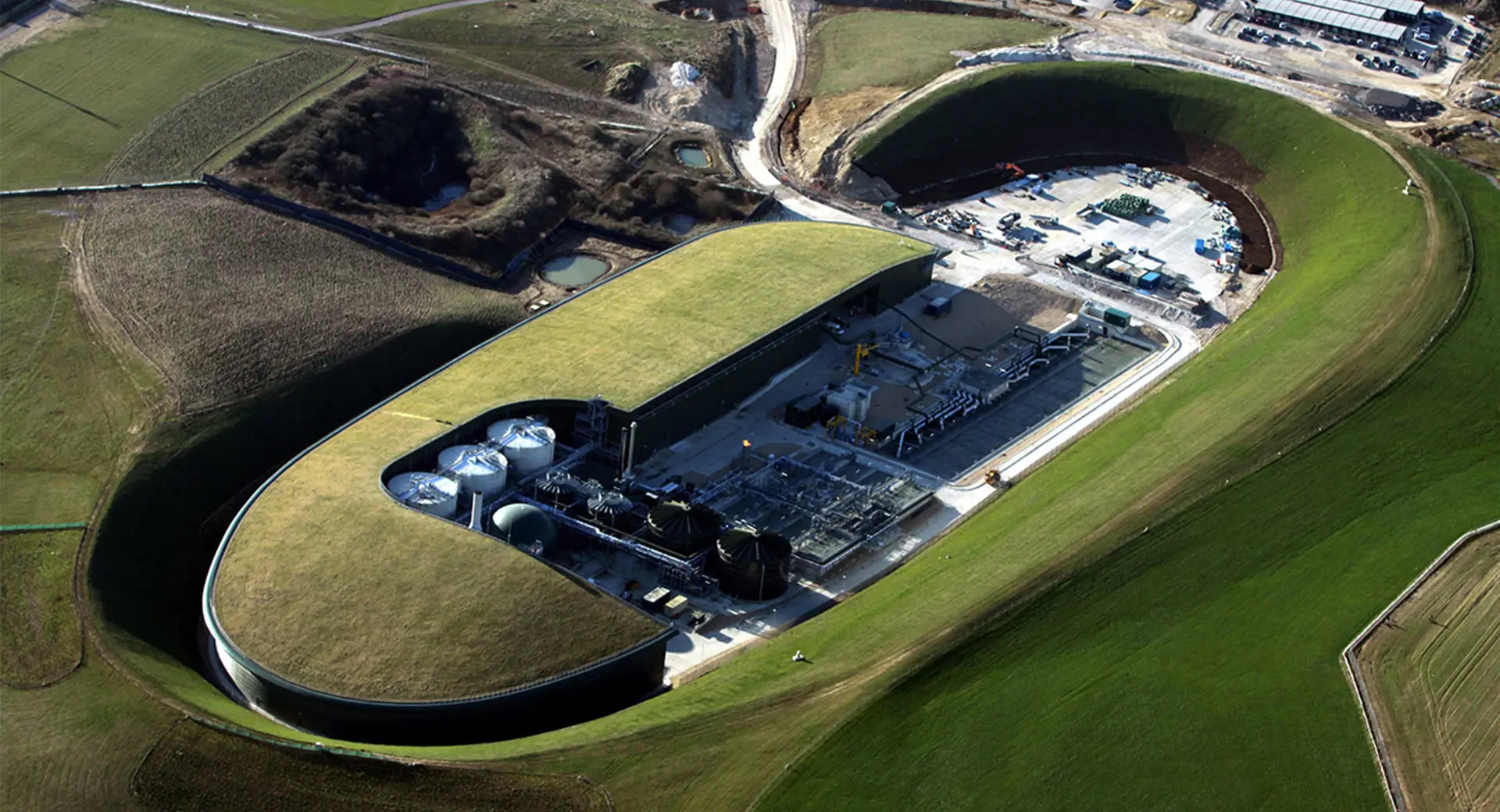Bioresources information
We're responsible for the treatment and management of the sewage sludge (known as bioresources) generated from our wastewater treatment plants. Here you can find more information about our vision for our bioresources operations.
Overview
We recover and treat around 111,000 tonnes of dry solids (TDS) of raw sludge at our 16 Sludge Treatment Centres (STCs).
This generates c. 65GWh a year of renewable electricity which is reused on our sites or exported to the national grid. It also produces over 250,000 tonnes of compliant biosolids, which is a valuable resource rich in nutrients and organic matter. Biosolids are currently recycled as an agricultural fertiliser and soil improver.
Our proposed vision for the future is “to create a resilient & sustainable bioresources operation that maximises value for the environment and our customers through the use of efficient and adaptive solutions.”
We believe that it's necessary to improve our current level of resilience by upgrading our asset base to the best available technologies, to reduce our exposure to future threats and enable us to efficiently capitalise on opportunities.
Our bioresources strategy
In developing and implementing our strategy, we have several commitments which are listed below.
1. Treat sludge efficiently and cost-effectively to produce materials that benefit downstream supply chains.
2. Achieve 100% compliance with the Biosolids Assurance Scheme (BAS) whilst eliminating our reliance on secondary treatment.
3. Create sustainable outlets for biosolids or any other materials.
4. Maximise the energy recovery from sludge.
5. Maintain operational resilience and mitigate future threats.
6. Contribute significantly to the company's ambition to reduce its operational zero carbon by 2030 and contribute to the UK Net Zero target of 2050.

Bioresources market
We aim to build effective long term relationships with our strategic suppliers and partners for success. Our recent Bioresources Market Activity has been limited to the scope of our existing framework contracts which is described in more detail in our Bioresources Market Activity report.
Similarly, we have partaken in relative small-scale local capacity trading activities with other water and sewerage companies or waste specialists, as reported in our Bioresources Market Information.
However, given the current financial constraints around the affordability and finance ability of our plan going forward, we don't believe that ambition for sludge treatment in the South East will be deliverable within traditional regulatory models and will therefore likely require market-delivered solutions, which will increase our level of participation in the bioresources market. We are developing innovative solutions to this challenge. To support the market development to deliver solutions for the transport, treatment & disposal of sludge, we've published our Bioresources Bid Assessment Framework, as per OFWAT’s guidance.

Biosolids Assurance Scheme
Southern Water is a certified member of the Biosolids Assurance Scheme. This is an independently accredited assurance scheme that provides users of biosolids products with the assurance and confidence that quality and compliance standards have been met or exceeded and that our quality management system is safe and effective.
Biosolids operations are predominantly regulated according to the following regimes:
- The Sludge (Use in Agriculture) Regulations 1989
- The Environmental Permitting (England and Wales) Regulations
- The Safe Sludge Matrix
Our certification under the BAS demonstrates full compliance with our obligations.
We report on our compliance each year to our financial regulator Ofwat and our environmental regulator the Environment Agency as part of our Annual Performance Report (APR).

Our long-term strategy
In building our strategy for bioresources, we've considered our existing operation and asset base, current and upcoming legislations, guidance documents and our internal standards and policies. We've also assessed future risks and opportunities and have benchmarked our proposed technological solutions against these.
Our strategy needs to be fully aligned with regulatory developments, the expectations of our customers and stakeholders and the challenges associated with climate change in the South East, and appropriately agile to adapt to change.
Our proposed solution involves the consolidation of sludge treatment centres (to fewer but larger sites) and upgrading to Advanced Anaerobic Digestion (AAD) as the primary means of sludge treatment. AAD will strengthen our operation and mitigate immediate threats as it converts a greater proportion of sewage sludge into other useful materials than our existing primary technology. This in turn will reduce the overall quantity of biosolids requiring recycling to agriculture. Additionally, the enhanced quality of the product will allow us to explore different outlets for recycling and reduce the risk of environmental impact during transport and storage.
In our Asset Management Plan for the period 2025–2030, we're proposing to focus on our sites in Kent by consolidating the 7 existing STCs into 2 large AAD facilities. We're also proposing in the plan to provide additional biosolids storage across all regions. This will ensure we have adequate storage capacity that's resilient to seasonal fluctuations in demand and weather that isn't favourable to land-spreading activities.
In future Asset Management Plans (2030–40), our focus will shift to Sussex & Hampshire. Here, we'll further consolidate sites and convert them to AAD while also implementing thermal treatment technologies to fully mitigate land recycling risks. The development of thermal conversion techniques will allow us to diversify away from agricultural recycling, creating an operation that is resilient in the event of changing regulatory standards for recycling materials to land.




